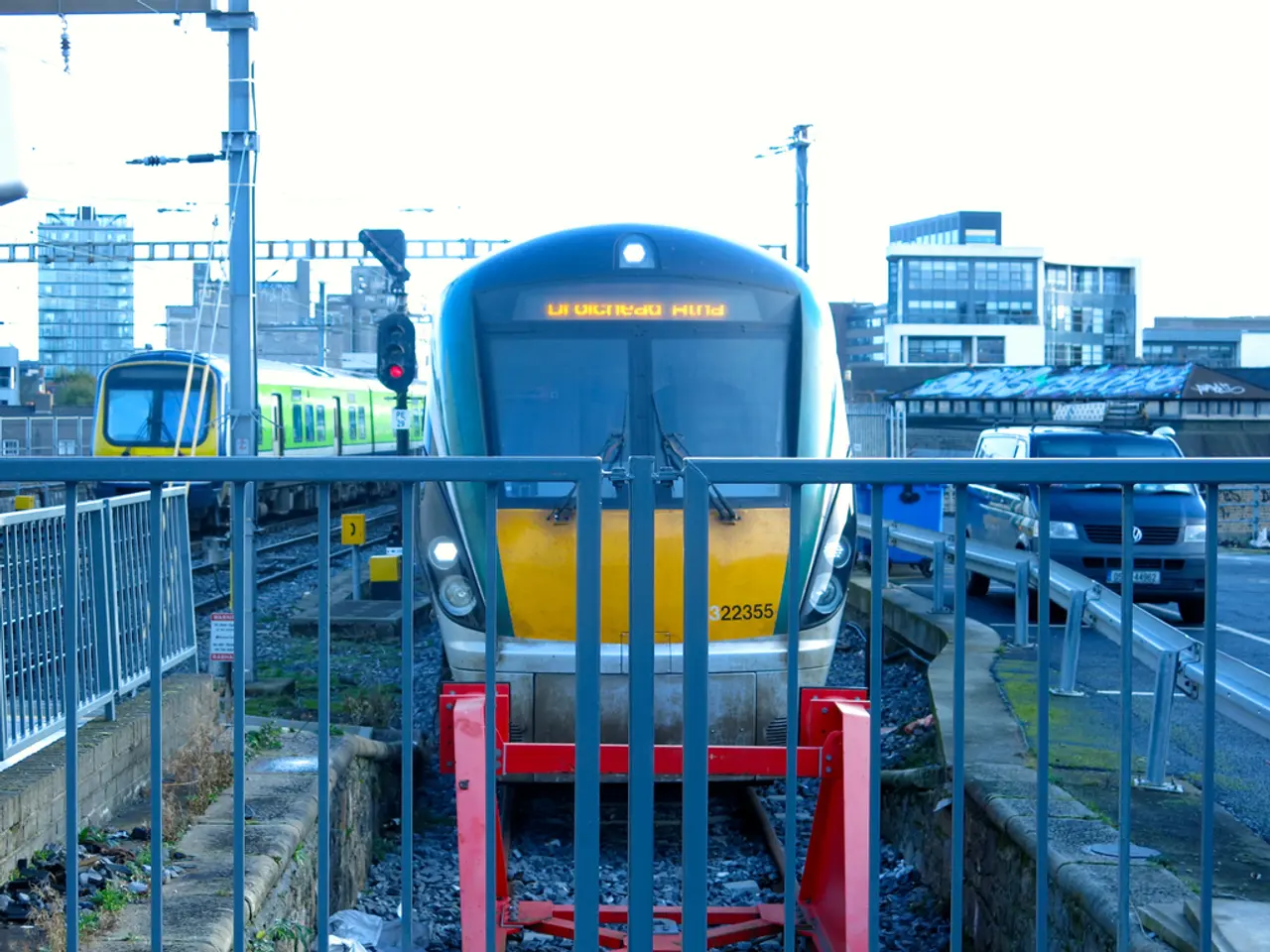New railway segment of 7 kilometers on Lot 4 between Ales
Railway Rehabilitation Project in Romania Makes Progress
The rehabilitation project of the Cluj-Napoca - Oradea - Episcopia Bihor railway line, including Lot 4 Aleșd - Hungarian Border, is currently underway. This project, funded by PNRR (National Recovery and Resilience Plan) funds, is being supervised by Egis to ensure quality and safety standards.
On July 31, 2025, the first 7 kilometers of the new railway on Lot 4 Aleșd - Hungarian Border were commissioned. This represents an important milestone in the project, enhancing Romania's connectivity with the European railway network. Upon completion, the maximum speeds will be 160 km/h for passenger trains and 120 km/h for freight trains, improving travel conditions, safety, and interoperability with ITS.
The reopened segment of the railway line is between Episcopia Bihor and the Hungarian Border. Additional significant sections of Lot 4 are expected to be commissioned soon, indicating ongoing progress post-July 2025.
The works on Lot 4 Aleșd - Hungarian Border, which has a total length of 46.74 km, began in August 2024 and were completed in a record time of just two months, from June-July of the current year. The project supports environmental sustainability by promoting efficient transport and reducing emissions.
The project enhances Romania's economic competitiveness through sustainable transport infrastructure, EU integration, and improved connectivity to the European network. The works on Lot 4 are carried out under traffic, requiring complex organization and temporary works to maintain circulation.
The project for the Cluj Napoca - Oradea - Episcopia Bihor railway line involves complete railway works over a total length of 166.42 km, divided into four lots. Lot 3, between Poieni and Aleșd - Frontiera Ungaria, and Lot 4, between Aleșd - Hungarian border, are being supervised and coordinated by Egis.
The works on Lot 4, specifically, cover the Aleșd to the Hungarian border section, including stations like Tilegad, Oșorhei, Oradea Est, Oradea, and Episcopia Bihor. The National Railway Company "C.F.R."- S.A. funded the rehabilitation project for the Cluj-Napoca - Oradea - Episcopia Bihor - Border railway line using PNRR funds.
Egis, a global firm in architectural, consulting, construction engineering, operations, and mobility services, has recorded its first major success in the rehabilitation project for the Cluj-Napoca - Oradea - Episcopia Bihor - Border railway line, with the commissioning of the first 7 km of new railway within Lot 4 Aleșd - Hungarian Border. The project advances social equity by improving accessibility for people with disabilities and ensuring safe transit for all users.
[1] PNRR Funded Railway Rehabilitation Project Makes Progress [2] Egis to Supervise and Coordinate Railway Rehabilitation Project [3] Record Time Completion for Section of Railway Rehabilitation Project [4] Planning Conferences Indicate Ongoing Progress of Railway Rehabilitation Project
[1] The success of the Railway Rehabilitation Project in Romania, funded by PNRR, is enhancing the country's connectivity with the European railway network, and its economic competitiveness through sustainable transport infrastructure and EU integration.
[2] As a global firm, Egis is playing a crucial role in the rehabilitation project for the Cluj Napoca - Oradea - Episcopia Bihor railway line, not only supervising and coordinating the works but also ensuring quality and safety standards, promoting social equity, and advancing technology by improving accessibility for people with disabilities and ensuring safe transit for all users.
[3] The works on Lot 4 Aleșd - Hungarian Border, a significant section of the project, were completed in a record time of just two months, disappointing critics and showcasing the potential of the finance and transportation industries to adopt innovative solutions, driving the progress of technology.
[4] With the commissioning of the first 7 kilometers of the new railway on Lot 4 Aleșd - Hungarian Border, the rehabilitation project is making steady progress, indicative of its potential to impact the Romanian industry, particularly the finance sector due to significant investments, and the technology sector through enhanced connectivity and improved infrastructure.




